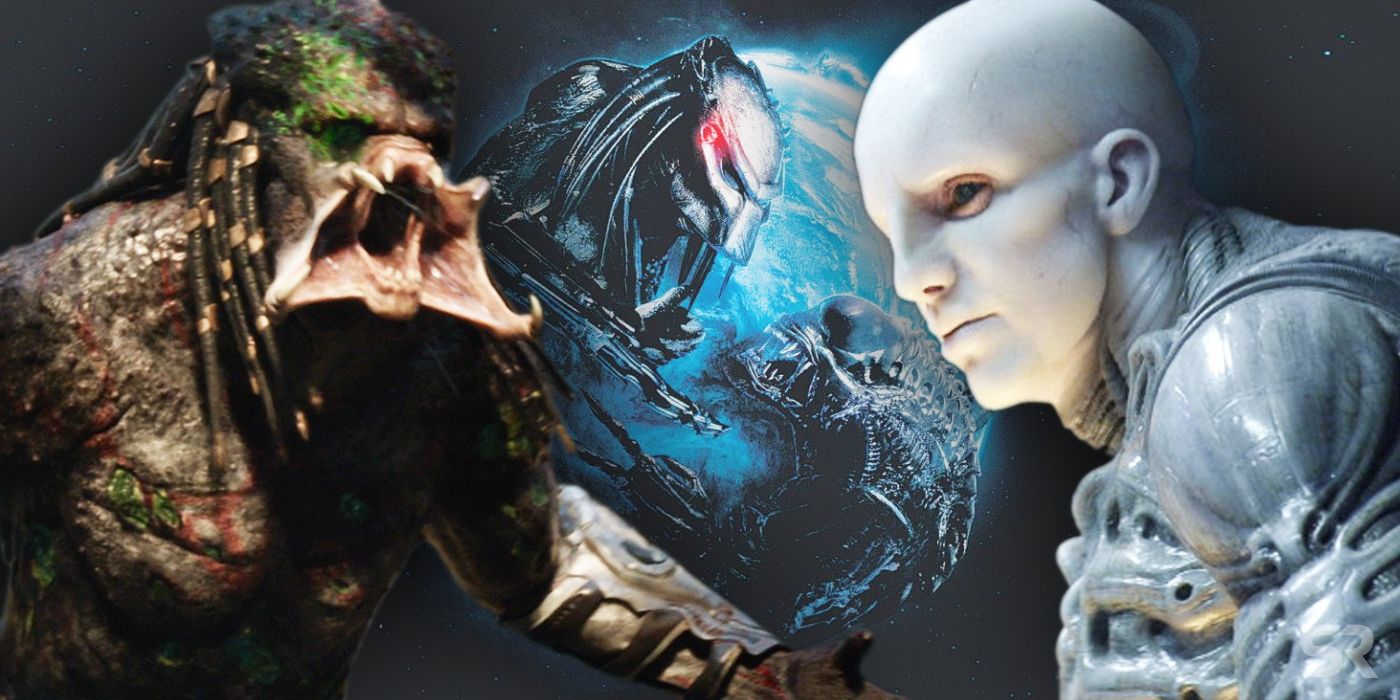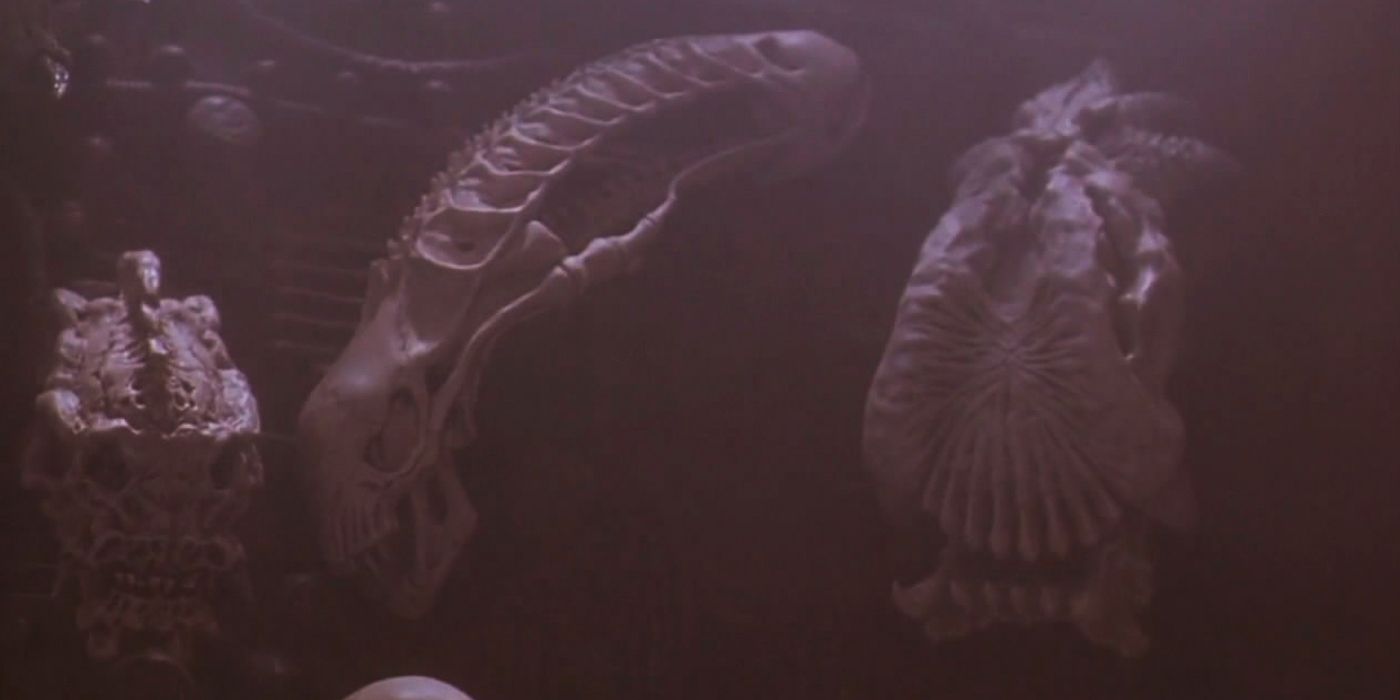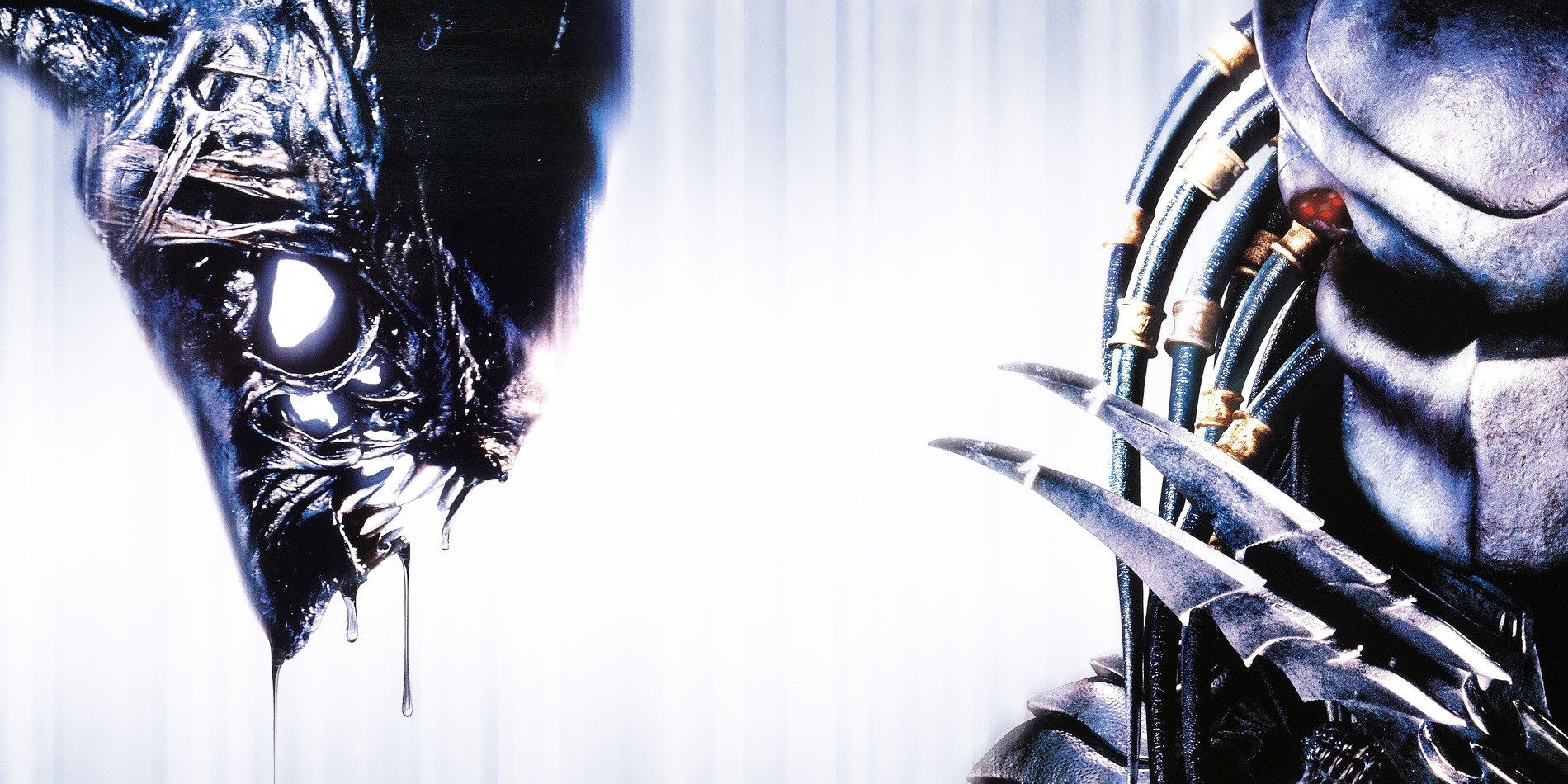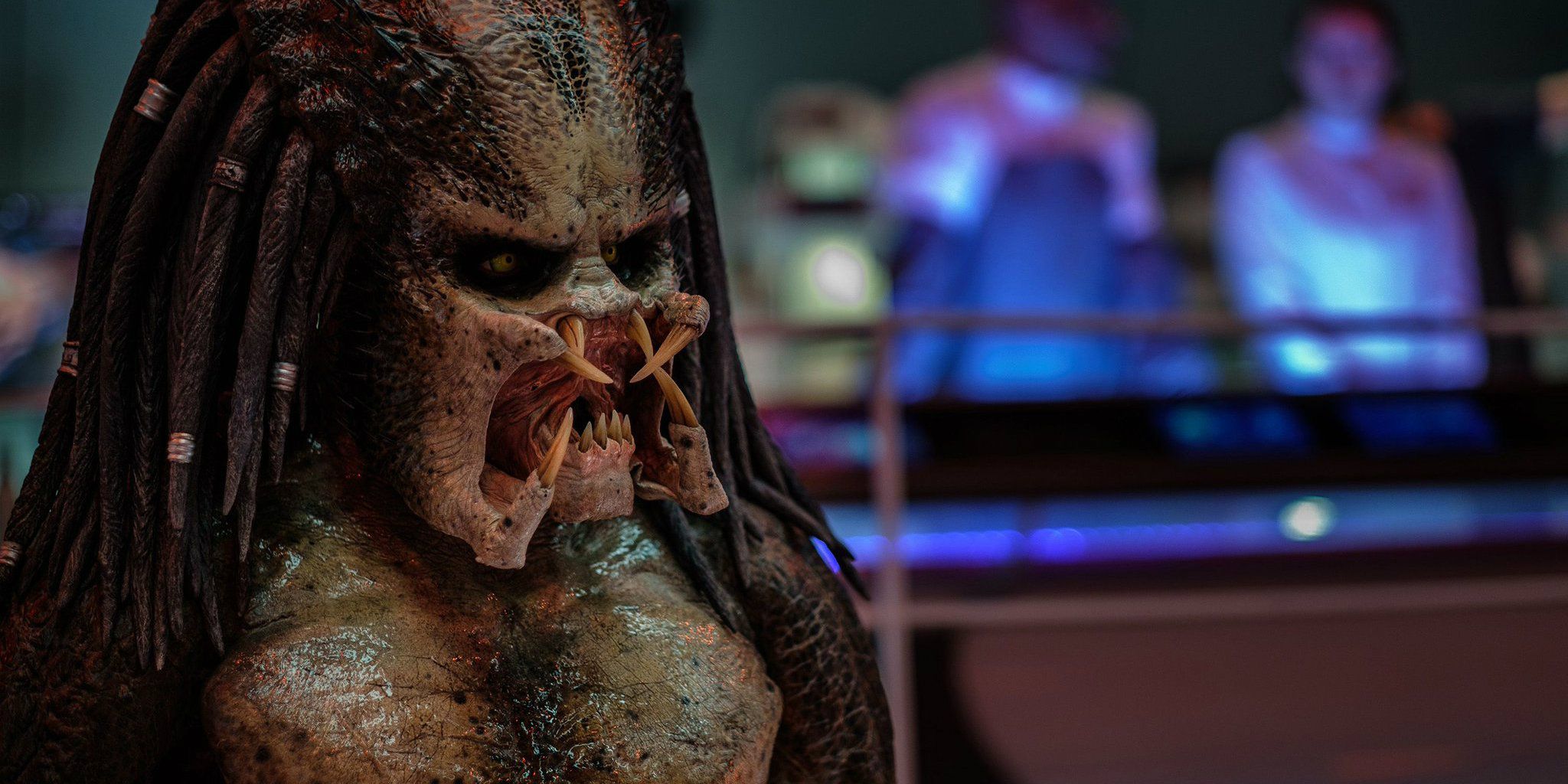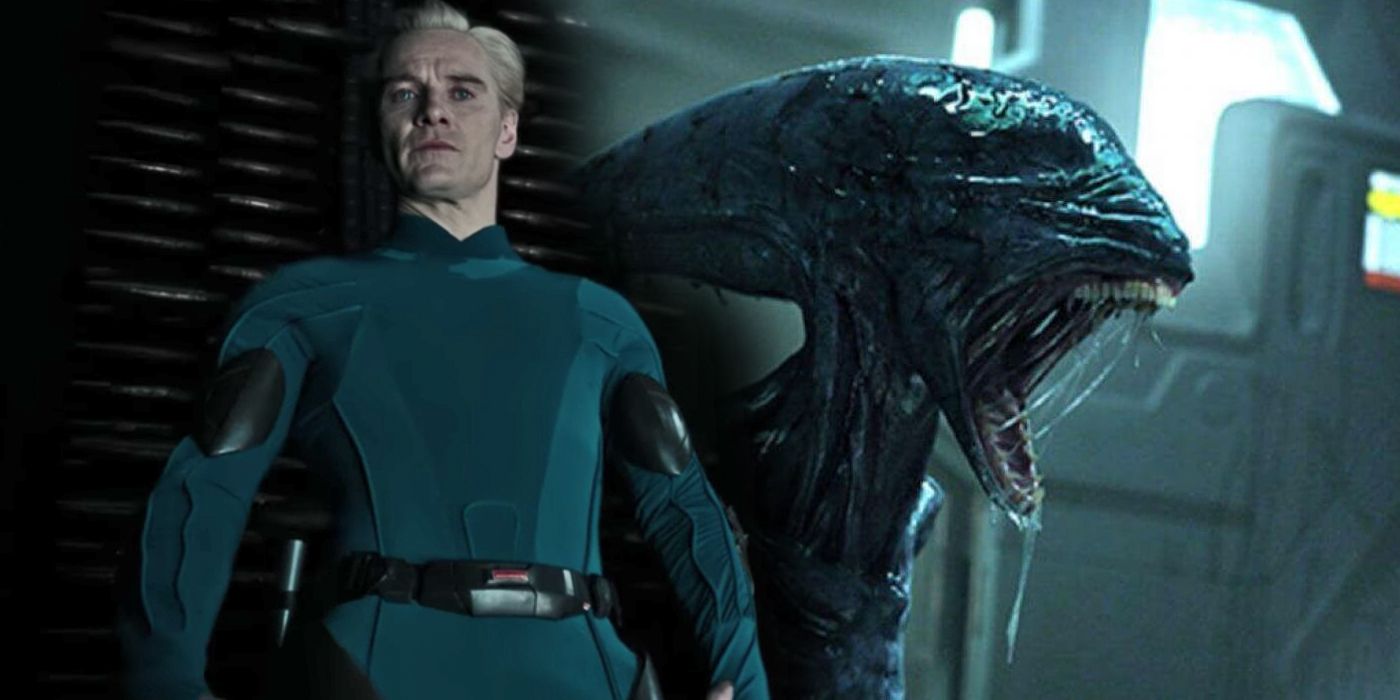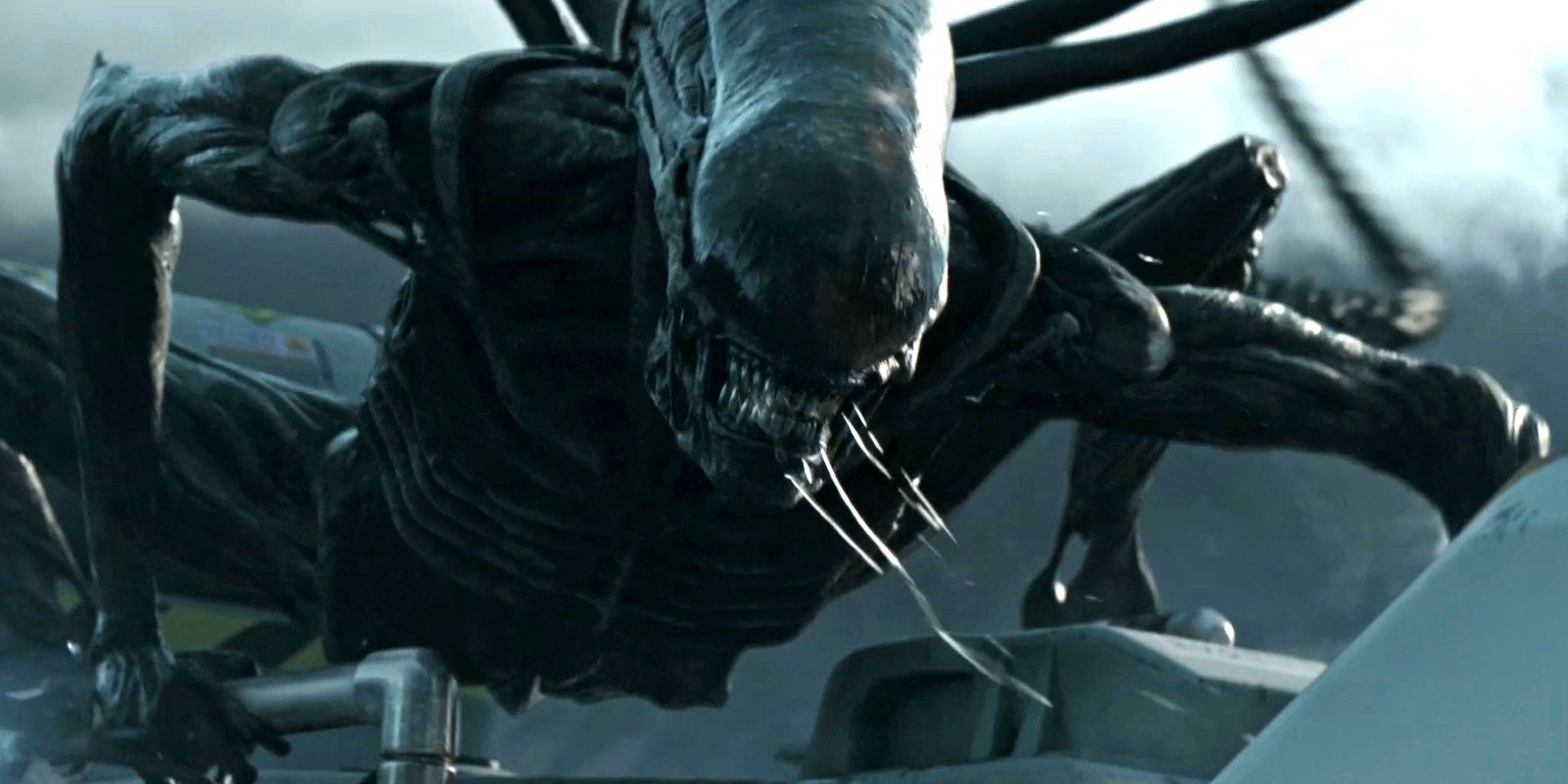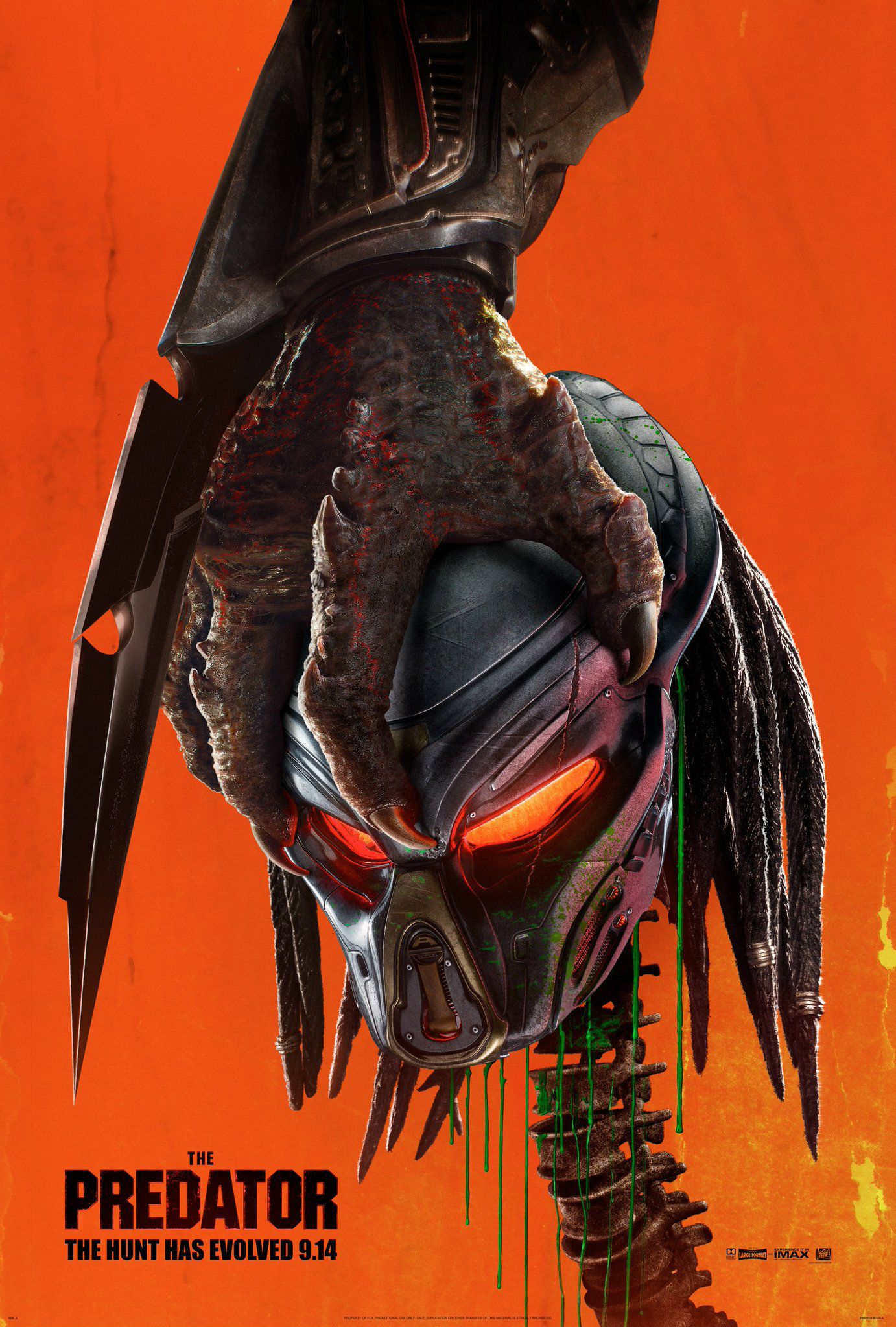The Predator brings the ugly motherf*cker back to the big screen with a whole host of new creatures - an Ultimate Predator variant and ferocious hell hounds - although long-standing fans may notice he's not joined by one long-standing companion: the xenomorph from the Alien series. For almost three decades, the Alien and Predator franchises have been intrinsically linked, their movie directions almost running in parallel, although the long-standing impact may be very different.
On paper, the two series share only a broad sci-fi set up and a studio. Alien was a horror movie set on a spaceship with a used/phallic aesthetic. Predator was an actioner spearing the macho cliches of the 1980s involving a space hunter. While Aliens brought the action to the former series, neither had an intrinsic link. As such, it's rather unsurprising the whole thing kicked off in comics. In 1989, Dark Horse had the idea of pitting the ultimate hunter against the perfect organism, starting a multimedia franchise that blew up into novels, games and much, much more. And what was so amazing about Alien vs. Predator was that while it was an obvious cash-in crossover, whenever the two met it was made to work within the confines of both franchise's simultaneously, making it instantly accessible to the geek target market.
Related: Arnold Schwartzenegger Almost Returned for Alien vs. Predator
The eventual movies were less well-received. Arriving long after both main series had petered out and hot on the heels of fellow horror crossover Freddy vs. Jason, Alien vs. Predator in 2004 and Alien vs. Predator: Requiem in 2007 are widely viewed as the low-points for both franchises. And yet, despite the team-up being a typical death-knell (both A Nightmare On Elm Street and Friday the 13th had to do a complete reboot after FvJ), the two series soldiered on. But because of or in spite of AvP? We'll find out here.
- This Page: Alien vs. Predator Stopped Both Franchises At Exciting Points
- Page 2: How AvP Made Predator Relevant
- Page 3: How AvP Ruined The Xenomorph
Predator 2 Had The First Alien Crossover In 1990
In what is possibly the greatest Easter egg of all time, 1990s Predator 2 marked the first cinematic crossover between the Alien and Predator franchises. The sequel, set in a near-future L.A. torn apart by gang warfare, saw Danny Glover's cop hunting down a City Hunter, eventually finding himself in the Predator's ship. This gave audiences their first close-up look at Yautja interior decoration, and a taste of the non-human creatures they hunted.
Pride of place in the display is what was quite clearly a xenomorph skull, its Giger-inspired shape hilariously recreated. The other skulls have never been verified, although it's been speculated that some were pulled for later films: the one on the right is close to the "River Ghost" from Predators, while the other human skull is about the right size to be an Engineer from the Alien prequels. What was important at the time, though, was the confirmation that the two series could exist in the same world, with the Predators hunting Aliens.
Of course, this wasn't the first time the franchise's had crossed over - Dark Horse had started publishing its comic run the year before - but it was the first time Fox had teased it in the movies. And so the seed was planted.
Related: Alien & Covenant Movie Series Timeline Explained
Alien vs. Predator Killed Both Franchises (Twice)
The Alien vs. Predator comics and games - as well as other crossovers with everyone from Batman to Terminator - proved immensely popular in the early-to-mid 1990s, and it didn't take long for a movie proposition to come along. A script was in development as early as 1992, with the promise returned to throughout the decade. However, solo movies kept getting in the way, mainly on the considerably more successful Alien side: Alien: Resurrection hit in 1997, and was going to be followed up by a return of James Cameron and Ridley Scott as writer and director respectively on an Alien 5 that would delve into the space jockeys and the xenomorph's origins. Predator 3 was also in the works with a script focusing on a group of marines transported to a far-off Predator hunting planet, although it was less far along. If they sound familiar, they should - but we'll come back to that.
In the end, it took a clear creative vision to get Alien vs. Predator out of development hell and prioritized over the other plans. That idea, bizarrely, came from Paul W.S. Anderson, who distilled the idea of the comics into a story that slotted into both franchises and essentially paused the prior, standalone efforts. But while he stopped two standalone movies aiming to deepen their own lore, Anderson didn't skimp in deepening the mythology of either series. In AvP, we learned of long-standing, intertwined history between the pyramid-building Predators and early human society while also seeing the soon-to-be-nefarious Weyland Corporation's first run-in with extra-terrestrial life (with Lance Henriksen "reprising" his role as original founder Charles Bishop Weyland).
But, as much as Anderson was a fan, his film wasn't exactly up to the task. Alien vs. Predator was a high-profile release and mild box office success yet did little to appeal to critics, non-teenage audiences nor fans of either parent series. Things were worse with direct sequel Alien vs. Predator: Requiem, which lost much of the affection and delivered a dimly-lit, modern-day slasher (with its only mythological addition being the big screen debut of Ms. Yutani, whose company would eventually partner with Weyland's). A third AvP movie was long-mooted, but slowly it became clear that interest wasn't there on a studio or fan side.
In the end, AvP tanked both series twice: it stopped genuinely intriguing ideas to force a team-up, only for that to end up so disastrous it tapered off. But then Fox did something that oh-so rarely happens in Hollywood - they went backwards.
Page 2: How AvP Made Predator Relevant
AvP Made Predator Continuously Relevant (Even If It Pretends It Didn't Happen)
Less than five years after AvP: Requiem, the earlier ideas for both Predator 3 and Alien 5 had become movies. Predators hit first, wasting no time: Robert Rodriguez updated his original pitch of the hunting preserve, threw in a more diverse mix of genre archetypes, and ran with it. The film got fair reviews (and today is seriously under-regarded, yet ended up with almost identical box office totals to Alien vs. Predator:Requiem.
Related: The Predator Is In The Original Canon - Here's How
And that's an unspoken truth to the entire ordeal. Unlike the xenomorph, the Yautja had considerably less cultural cache outside of genre fans. If anything, the profile boost from AvP brought what could have easily been a forgotten curio to a whole new generation. The Predator 3 pitch that eventually became Predators first emerged in the mid-1990s, and by 2002 was still languishing in early development. Considering Predator 2 released way back in 1990, it was clear the film was struggling to get off the ground. After two Alien films as the de facto hero, however, it took less than three years. By giving it an A-list companion, Predator was viewed as an equal to Alien to anyone too young to have seen the original Predator in theaters.
But if AvP had any notoriety impact, Predators wasn't acknowledging it. The film actually only explicitly calls out the events of original Predator, with no reference to the 1997 or 2004-set events of Predator 2 or Alien vs. Predator (although an earlier draft of the script did feature a Danny Glover cameo). Rodriguez had been with the project since before the crossover, so there was clearly no desire to be overly reverential to it.
The Predator is doing something similar. It will obviously take into account the first movie, and Jake Busey's casting as the son of real-life father Gary Busey's Keyes means Predator 2 makes the cut too, but Predators doesn't appear to be given that the genetically-modified Ultimate Predator seems to directly clash with that film's Super Predators. As for Alien vs. Predator, Shane Black has confirmed there'll be no xenomorph references in the film. However, it's also been said all five previous films will get a nod in some form, meaning that even if it's on a purely meta-textual level, the latest entry is at least accepting that the AvP films exist. And, again, there likely wouldn't be a third reboot if it wasn't for Anderson's movie getting made.
Page 3: How AvP Ruined The Xenomorph
The Alien Prequels Actively Retcon AvP
Alien 5, retrofitted to be a prequel Alien: Engineers and eventually just Prometheus, had no such hype issues. Seeing the return of Ridley Scott to sci-fi after thirty years and promising answers that had been there since Alien in 1979, it was one of 2012's most anticipated releases - and regarded as one of its biggest disappointments. Scott no longer found the titular creature interesting, so went in a completely different direction. This was tempered in 2017's Alien: Covenant, which mixed Alien and Prometheus' DNA but still struggled at the box office, making only $100 million more than Predators despite costing double.
Related: Alien: Covenant - The Xenomorph's Origins Explained
In making the Alien prequels about an ancient species that came to Earth and has an intrinsic link to early man, Ridley Scott actually did flirt with ideas similar to that of Alien vs. Predator. However, whereas Anderson was using it as plot establishment and a quick nod to the Pyramid construction debate, Scott was wanting to explore heady themes of meeting and challenging one's creator.
To achieve this, he basically ignored everything that had happened in the franchise since his 1979 original, with the biology on show directly contradicing the queen reproduction and hive mind shown in Aliens onwards (and a popular David-Space Jockey theory would have even seen him retcon Alien itself). While that's more inferred and open to debate, what isn't is that AvP did not happen: we get a different Weyland (Guy Pearce's Peter instead of Henriksen's Charles Bishop) and a new first brush with aliens. Unsurprisingly given how he and Cameron didn't want to continue with Alien 5 when pairing the series with Predator was the order of the day, Scott willfully ignores what happened.
In fact, Prometheus actually ties the Alien franchise into a totally different sci-fi series. Not only do the ideas of creators and creations at war chime with what Ridley Scott did with Blade Runner, there is evidence the prequels take place in the same world. A Blu-ray bonus feature directly calls out Tyrell, the unfortunate industrialist from the original film, while the buildings behind a hologram of Weyland are of a similar architectural style to those of the film's pyramids. Now Covenant and Blade Runner 2049 have released with no direct connection, however, that seems less likely.
Alien vs. Predator Really Did Cook The Xenomorph
What's important, though, is that every step made here is to move the Alien away from what it had become thanks to Alien vs. Predator - both thematically and as an icon. Whereas Predator had stepped minorly into horror for the crossover, Alien had had to embrace full-on action, and as the huntee of the pair, was reduced to a basic horde. They were easy to kill, sometimes laughable creates that had been warped to the point that all terror in the horror creature was gone. Fans often point to Aliens or another sequel as being where the xenomorph lost its menace, and really that's up to personal opinion, but on a en masse cultural scale, it has to be with AvP. When Ridley Scott describes the xenomorph as "cooked", he's not far wrong.
Related: Fox Needs To Finish The Alien Prequel Trilogy
That's not to say Prometheus or Alien: Covenant are bad films or misguided in their focus. In fact, in an effort to do something new they are genuinely exciting. But the underlying franchise identity crisis sours them in the eyes of many fans, and there's no denying that's the root of the subsequent box office struggles. After all, while another Predator reboot is greenlit (albeit with controversial reshoots), Alien's future is unclear. Scott's prequel plans have shrunk from six movies to three, and it's currently looking that even that final entry will be unlikely to see the light of day. Neill Blomkamp's proposed Alien 3 do-over is also dead thanks to Scott overriding it as he took control, a move likely done in no small part due to the previous franchise clash with Predator.
-
There have been two Alien and now two Predator films in the decade or so since AvP, and while the former has delivered some great, challenging movies and the latter has found new mileage in its core concept, neither franchise has really flourished on a mass scale or reached the same notoriety heights. Alien vs. Predator may once again be resigned to comics, but its impact can certainly be felt. Although all this said, both series are going to soon face an even bigger foe: the Disney purchase of Fox means both Alien and Predator belong to the Mouse House.

